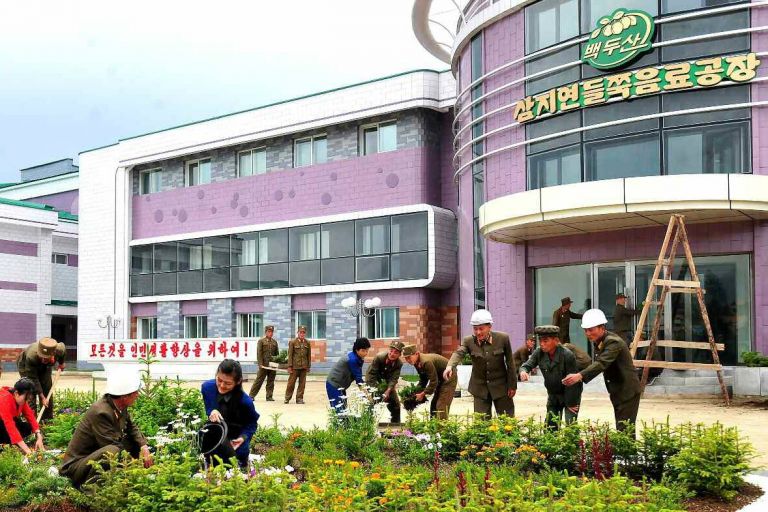North Korea touts the Samjiyon Blueberry Drink Factory—which makes products from the blueberries that grow around the Mount Paektu region—as a model regional factory. But despite the regime’s claims about how the factory is stimulating the local economy, residents complain that the blueberry products manufactured there are seldom seen in the area.
“The wine, soft drinks and sweet jellies made at the Samjiyon Blueberry Drink Factory are mostly sent to Pyongyang and exported by trading companies. It is rare for locals to purchase them at state-run stores or even get a glimpse of them,” a source in Ryanggang province told Daily NK recently.
North Korea is currently pursuing a policy of “regional economic revitalization” with the goal of energizing rundown areas, reducing disparities with the capital of Pyongyang and improving the standard of living in the provinces. The ruling party emphasizes that the most effective and concrete way of achieving those goals is by developing local specialties.
That amounts to each region utilizing unique geographical features and resources to make specialty products that can generate independent income, meeting the people’s needs and creating a livelihood for them. In effect, the party is imposing the principle of self-sufficiency on regional economies.
Despite that lofty rhetoric, locals have little chance to actually taste the products made at the Samjiyon Blueberry Drink Factory. According to the source, most of the products are exported overseas or whisked off to Pyongyang to serve as luxury gifts.
Workers sell products on the side
Another issue is that factory workers frequently sell off a portion of the factory’s output at the local marketplace and pocket the proceeds.
Even when blueberry wine is not available at state-run grocery stores, it is reportedly for sale at informal marketplaces, where a bottle goes for 35,000–40,000 North Korean won. Ordinary North Koreans balk at such a price, which is enough to buy several days’ worth of food.
In late July, a factory worker was denounced at a struggle session for trying to sell top-shelf blueberry wine to a market vendor. While stealing factory goods is a serious offense, the case was not pursued any further because other factory workers would have likely been implicated in a full investigation.
Availability and price are not the only complaints to be leveled at the factory’s blueberry products.
“Products occasionally show up at state-run stores, but those who try them generally say the taste doesn’t live up to the fancy packaging,” the source said.
Both in quantitative and qualitative terms, therefore, the factory output is failing to meet the people’s needs. That shows that despite regime propaganda, this factory is not meaningfully benefiting the lives of people in the region.
In the end, critics say, the regime’s much-touted policy of “regional economic revitalization” amounts to more of a propaganda slogan than an actual attempt to improve people’s lives.

